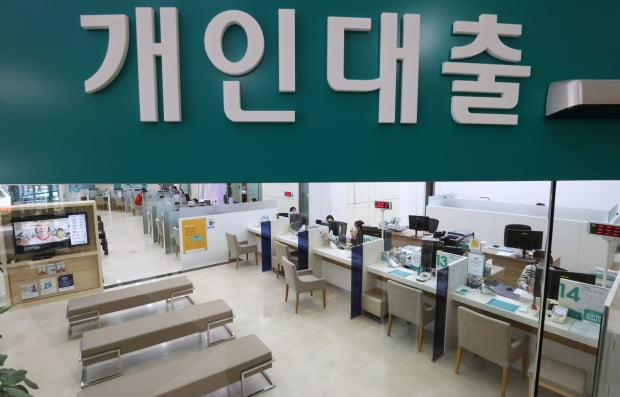
Photo = Yonhap News
Credit loans, which banks have halted in accordance with the government’s policy to curb household loans, will resume from the new year. At the end of last year, when the complaints of the common people who were suddenly caught on the’loan cliff’ followed, an analysis that the financial supervisory authorities allowed the loan to resume. However, credit loans for high-income families are still under control.
○ Suspension of handling Resumption of non-face-to-face loans
According to the financial sector on the 1st, Kakao Bank, an internet-specialized bank, has been reapplying for a negative bankbook credit loan, which was temporarily suspended from the 17th of last month, from 6 am on the day. An official at Kakao Bank explained, “As a non-face-to-face bank, it was a very difficult decision to stop opening Matong. From the new year, we have resumed loans for customer convenience.” Shinhan Bank stopped accepting non-face-to-face loans such as’Convenient Office Workers’ Credit Loans’ from mid-last month, and from the 23rd, it stopped accepting all credit loans except for low-income financial products. It is planned to be handled normally from the 4th, the first business day of the new year. Kookmin Bank also handles loans from the 1st. From the 14th of last month, Kookmin Bank completely stopped handling credit loans of more than 100 million won, and from the 22nd, it has put a’super strong’ to block all credit loans exceeding 20 million won.
Some banks are recovering from the measures that eliminated preferential interest rates (loan interest discount). Eliminating the preferential interest rate has the effect of suppressing the total amount of loans by creating an’interest rate increase effect’. The Nonghyup Bank will increase the preferential interest rate on a variable rate home mortgage loan from 1.0% to 1.4% from the 4th. In terms of credit loans, the preferential interest rate, which was tightened to 0~0.25%, has been reverted to 0.8~1.2%.
However, the measure that temporarily strengthened the total debt principal repayment ratio (DSR) standard that was applied to housing-related loans since November of last year will be maintained. Nonghyup Bank was able to receive up to 100% of DSR for each individual, but since the beginning of November, if the repayment of household loan principal and interest exceeds 80% of annual income, it has not provided loans.
Other banks are also weighing the resumption dates for credit. Woori Bank is also planning to start selling the non-face-to-face product’We WON Employee Loan’, which was discontinued in November of last month. Hana Bank is also contemplating when to resume handling of Hana OneQ credit loans.
○ High loans are still limited
The reason the government has demanded the banks to charge money is because it believes that household loans raise real estate prices. In addition, Shinhan, Kookmin, Woori, and Nonghyup Banks, which introduced the standard of’Basel III’, a capital adequacy regulation, rapidly lowered the share of household loans by the end of the year, resulting in a’loan crisis’. An official from a bank explained, “Banks that introduced Basel III must meet the regulatory level in December and June every year.” “In January, the total loan amount was’reset’.” That is, there is room for loan.
Banks’ resumption of lending is due to’communion’ with financial authorities. Because of this, there are observations that the government’s stance to only clamp on loans has changed somewhat. It is known that the financial authorities will come up with new household loan measures soon. It is reported that the proposal to ease the limit of 2 trillion won in monthly balance increase granted to banks since October last year is widely discussed. Financial Supervisory Commissioner Yoon Seok-heon said, “At the end of last year, the financial supervisory authority will continue to curb household loans, but it seems that the financial authorities have changed their position in the new year as a side effect of clogging the money line of the common people occurred.”
However, the government’s stance against high credit and high credit loans is expected to remain unchanged. It is known that the financial authorities receive daily reports of the status of large credit loans exceeding 100 million won for each bank. An official from the financial sector said, “The government logic of giving loans to low creditors and not giving loans to high creditors is contrary to the basics of finance,” and said, “In the end, only the bank’s insolvency can grow.” Reporter Daehoon Kim/Jongseo Park [email protected]
Reporter Daehoon Kim/Jongseo Park [email protected]
Ⓒ Hankyung.com prohibits unauthorized reproduction and redistribution
